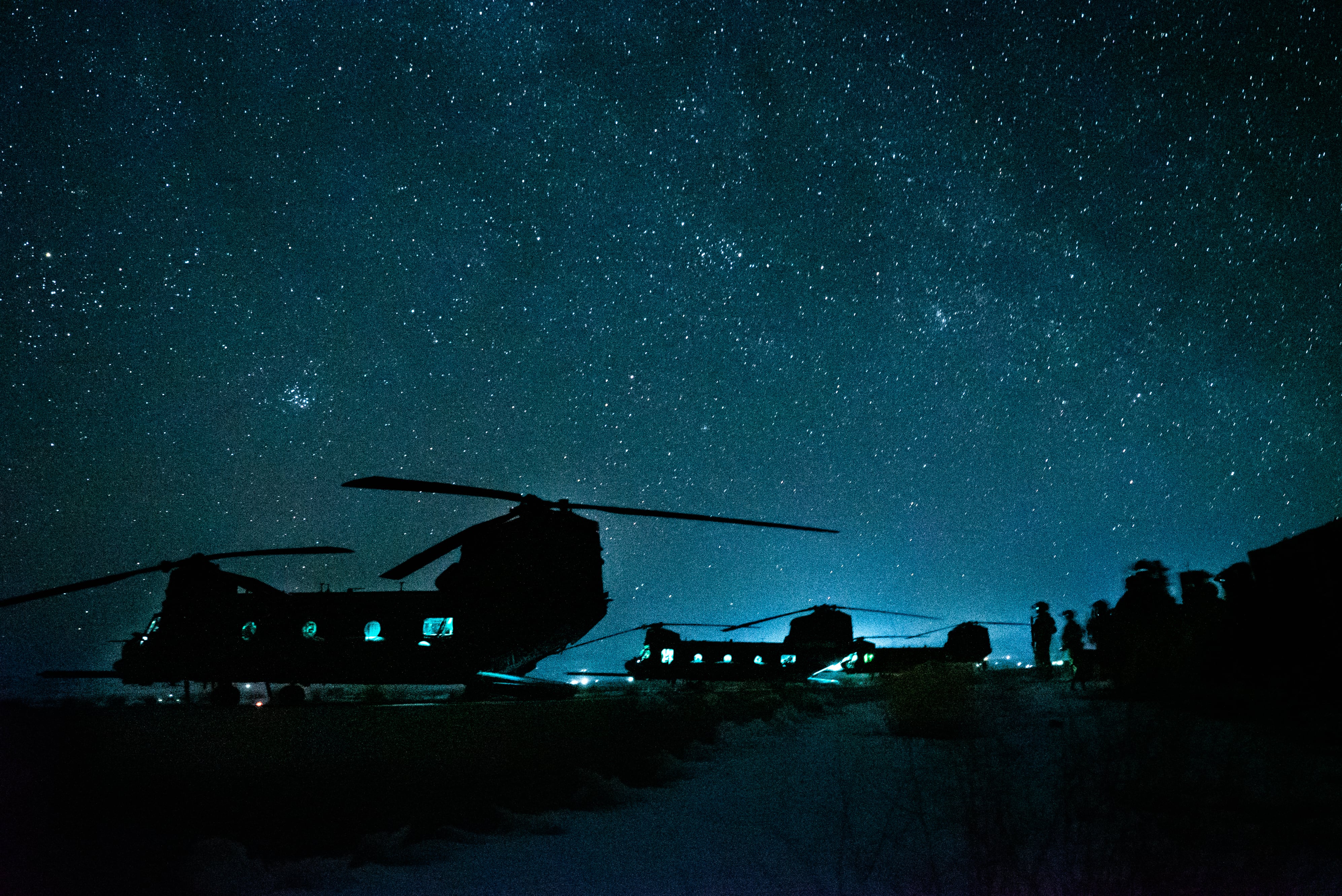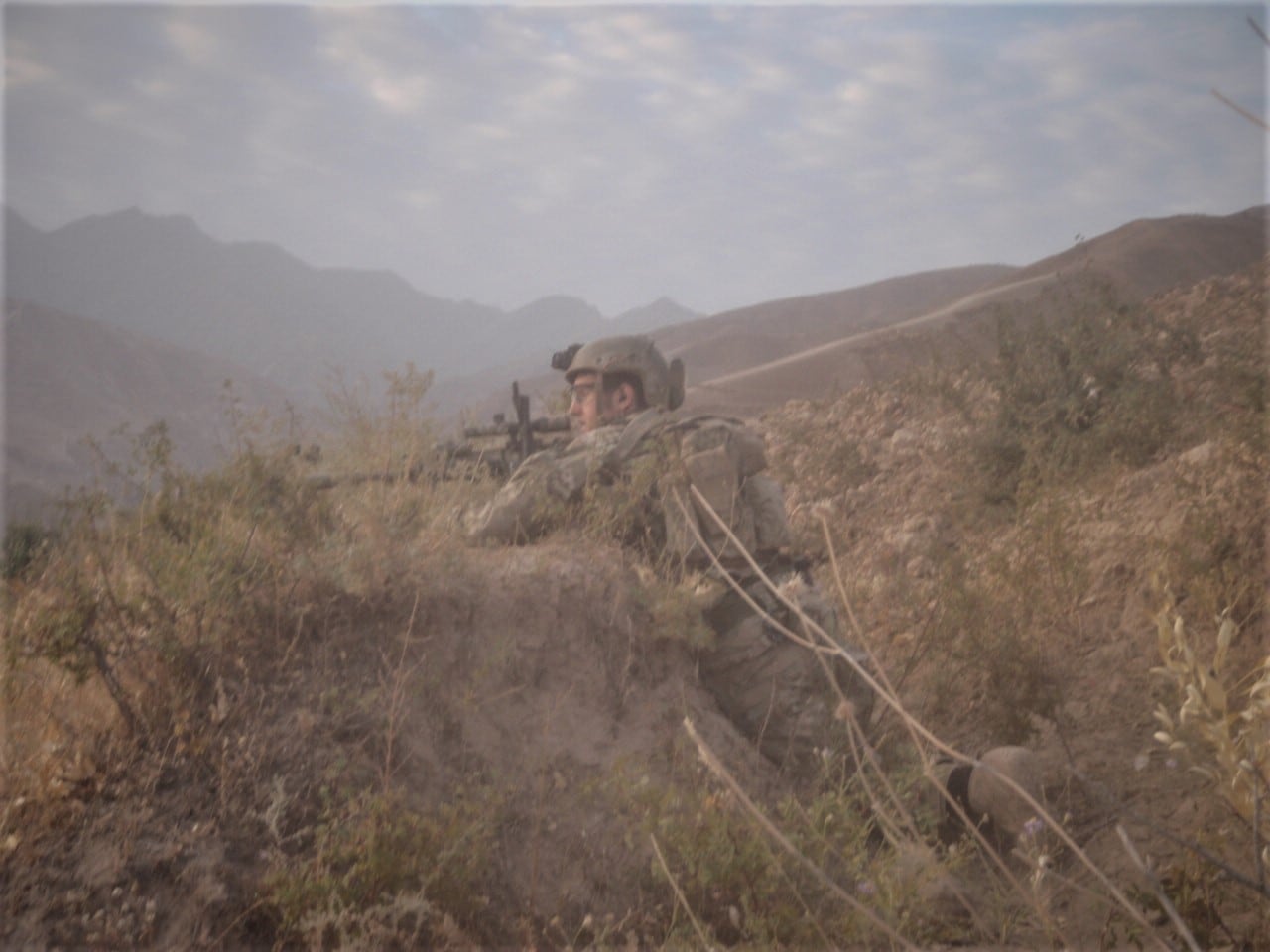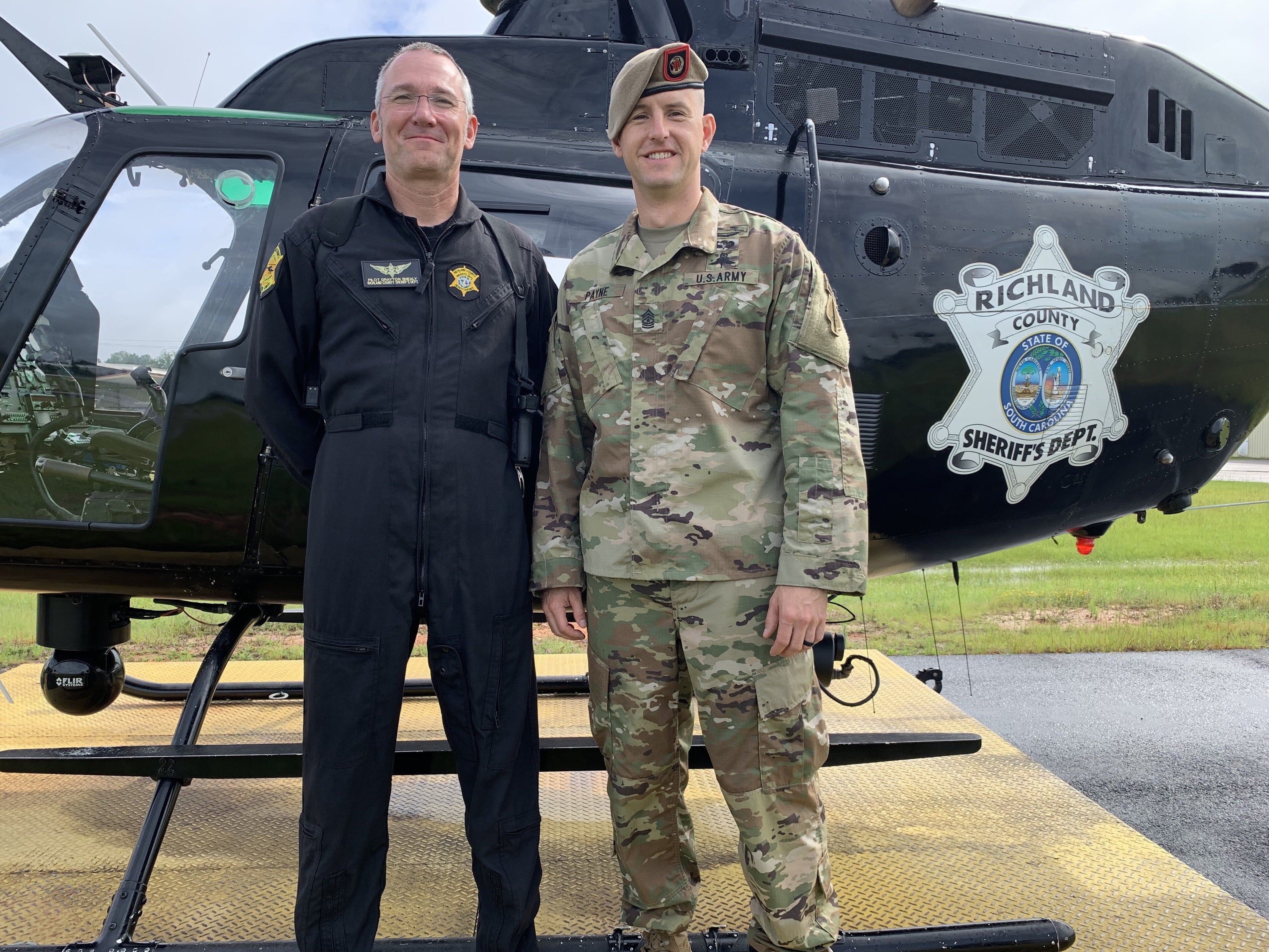Freshly dug graves underscored the urgency of the hostage rescue mission in the predawn hours of Oct. 22, 2015.
The Islamic State of Iraq and Syria still held significant territory, and more than 70 captured Iraqi troops held near Hawija in northern Iraq were expected to soon be killed by the jihadi group now infamous for the mass graves it left behind.
“If we didn’t action this target, then the hostages would probably have been executed,” said Sgt. Maj. Thomas Payne, a career Army Ranger and Delta Force operative who will receive the Medal of Honor for his actions during the raid at the White House on Friday.
Payne will be receiving the nation’s highest award for gallantry in combat on the 19th anniversary of the Sept. 11, 2001 terror attacks. That was also the day he decided to enlist, he recalled in an interview with Army Times.
“I was a senior in high school. I was in class and we turned on the TV after the first plane hit. ... That was the defining moment,” Payne said. “Once the towers fell on 9/11, that’s when I decided I was going to join the military and I was going to serve with the 75th Ranger Regiment.”
Payne, who now serves in an instructor role under Army Special Operations Command at Fort Bragg, North Carolina, was a sergeant first class and assistant team leader when he and other members of 1st Special Forces Operational Detachment-Delta undertook the 2015 hostage rescue mission.
The soldiers had spent all week rehearsing for the operation. When intelligence assessed graves were recently dug around the prison, the raid was approved and the task force loaded onto their CH-47 helicopters to be ferried to the compound.
“Ramp drops; we run out of the back of the Chinook helicopter," Payne told reporters at the Pentagon Thursday. "It’s a complete brown-out. We are in a pretty intense firefight right off the bat.”
Payne’s team was charged with clearing one of several buildings in the prison compound. They used ladders to scale the walls and as they did so, a call came over their radios: one of their own was already already hit.
Master Sgt. Joshua L. Wheeler, 39, the first U.S. service member killed in action fighting ISIS, was fatally shot in a different location while moving to aid Kurdish operators pinned by enemy gunfire.
Payne’s medic left to help with Wheeler’s wounds while the team continued over the wall. But some of the Kurdish partners were reluctant to continue on.
“At that point, our partners needed some strong inspiration,” Payne recalled. One of the other Americans looked a Kurdish fighter in the eye and said, “Follow me," and they pushed on to the first building.
RELATED

“When you’re able to control your fear, that’s the greatest personal courage,” Payne said. “Personal courage is contagious on the battlefield.”
The team met light resistance in the first building. They cut a set of thick locks and opened the steel doors to two cells. The faces of three dozen hostages inside lit up with relief, according to Payne.
But there was little time to celebrate. Calls were already coming over the radios asking for assistance. The second team, just 30 yards away, had met stiff resistance as they attempted to breach the second building housing hostages.

Payne’s team ran to the second building and climbed onto its roof, which was at this point burning, and attempted to enter from above. Suicide vests detonating below shook the roof and more gunfire from an ISIS position to their west forced them back down.
They attempted to breach the building’s windows with explosive charges, but metal sheets blocked the blasts. Payne then went back to the initial breach point of the building where several Kurdish operators had been wounded moments earlier. A quick glance through the breach and Payne saw that the prison doors were of the same make as the ones in the first building.
Payne took a pair of bolt cutters and ignored the enemy gunfire, smoke and flames, as he ducked inside to cut the locks. His actions spurred others to do the same, with task force members now covering him.
“I was able to cut the first lock. I bumped out. I had to catch my breath. The buildings on fire [and] we’re getting shot at,” Payne said.
A Kurdish operator tried unsuccessfully to cut the second lock before having to dodge out as well to recover from the smoke inhalation. Payne took the bolt cutters once again and exposed himself to enemy fire to break the final lock.
“The smoke deck is starting to drop at this point. I maneuvered [back] in and was able to cut the lock off, [and] kick the door open," he added. “As soon as I made entry into that house and secured a foothold, we received a call that the building was starting to collapse."

About 30 more hostages poured out of the building, most disorientated and confused as they exited under gunfire. Payne helped ferry the hostages outside, dodging back into the building several times to drag one out to safety and again to ensure all had made it out before giving the last-man call to his teammates.
The Kurdish and U.S. operators created a human wall to guard the hostages as they moved out of the compound and to the Chinooks, according to the Army’s citations of the event. Payne’s team stood aboard the helicopters during the flight back to Erbil, giving room for the hostages to rest.
When they landed at the airfield, the team was told that Wheeler, who had been shot early on in the raid, had died.
“His last words before he moved to the sound of the guns were, ‘on me,’” Payne said in an Army video recounting the battle. Wheeler posthumously received the Silver Star for his actions.
For Payne’s own actions that day, he will become the first living Delta Force member to receive the Medal of Honor, Military.com previously reported. The two other members of the elite unit who earned the award, Master Sgt. Gary Gordon and Sgt. 1st Class Randall Shughart, died during the 1993 Battle of Mogadishu.
But in Payne’s mind, the award is more of a responsibility.
“I look forward to serving as a guardian of this medal," Payne told Army Times. “I just want to be a man who wears it well."
“And I look forward to serving the Army as a sergeant major,” he added. "I’ve got 18 years of combat experience that I can pass on to the next generation of soldiers. That’s what I plan on doing.”
Kyle Rempfer was an editor and reporter who has covered combat operations, criminal cases, foreign military assistance and training accidents. Before entering journalism, Kyle served in U.S. Air Force Special Tactics and deployed in 2014 to Paktika Province, Afghanistan, and Baghdad, Iraq.





